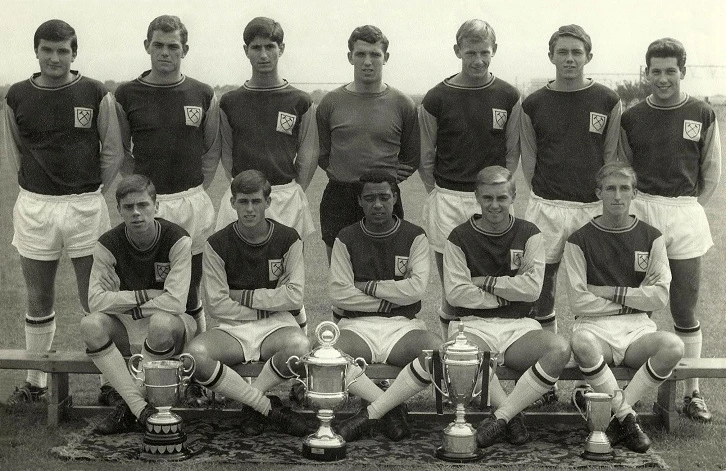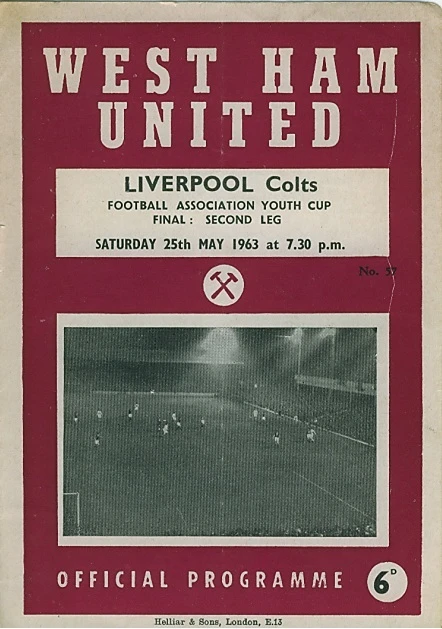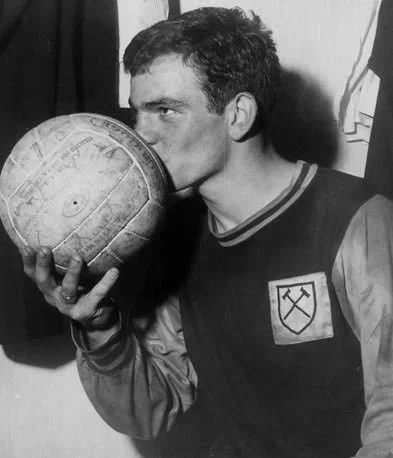West Ham United Colts 5 Liverpool Colts 2 (West Ham United win 6-5 on aggregate) FA Youth Cup final second leg, Boleyn Ground, Saturday 25 May 1963
Established in 1953, the FA Youth Cup quickly became one of the most-coveted prizes in English football, showcasing clubs’ ability to scout and develop their own outstanding young players.
Coinciding with the advent of the Academy of Football, it comes as no surprise that West Ham United were among those to show the most enthusiasm for the new competition.
Twice in the 1950s, the Hammers came within a whisker of lifting the trophy. In 1957 Manchester United, who had won the opening four tournaments, proved too strong in the final, winning 8-2 on aggregate.
Two years later, in 1959, a West Ham side captained by Bobby Moore and containing the likes of Jack Burkett, Eddie Bovington, Tony Scott and Geoff Hurst was edged out 2-1 by Blackburn Rovers over two legs.
The east Londoners reached a third final in seven years in 1963, with a side featuring skipper John Charles, future FA Cup winner John Sissons and Harry Redknapp.
There, the Hammers faced Liverpool, who were appearing in their first-ever FA Youth Cup final. The Reds, whose first team had been promoted from the Second Division the previous year under manager Bill Shankly, took control of the tie in the first leg at Anfield on Thursday 23 May 1963, winning 3-1.
The two-legged final had been delayed until the end of May by a series of replays in the earlier rounds, meaning a relatively low crowd of 13,000 turned out for the return game at the Boleyn Ground 48 hours later.
West Ham had played their semi-final and replay with Wolverhampton Wanderers the previous Saturday and Monday, meaning they had to contest four games in eight days to lift the trophy.
Trailing by two goals at kick-off, that eventuality appeared unlikely, but a Claret and Blue hero was about to emerge.


